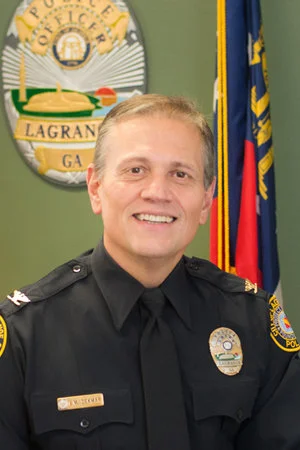James Comey wasn’t the nation’s embattled former FBI Director in 2002; he was the top federal prosecutor in Manhattan. It was around then that he gave a speech to a group of fellow attorneys -- men and women with impeccable courtroom records. He had a few... harsh words.
Read MoreThe latest bombshell development in the Trump-Russia affair -- news of Donald Trump Jr.'s meeting with a Russian lawyer he hoped would provide him with incriminating information on Hillary Clinton -- has prompted some pretty intense rhetoric. Intimations of "treason," for instance. But does the concept apply here? We examine the legal definition of treason in the context of Trump and Russia.
Read MoreWe hear it all the time: law enforcement needs to change for the 21st century. But what does "21st century policing" actually mean, and how would that police department be different than what we have now?
Read MoreIn the last 25 years, DNA has become a tool of unparalleled power, solving the coldest cases and overturning guilty verdicts based on faulty forensics, false confessions, and bad eyewitness identification. But a new process for analyzing DNA using computers means that now, DNA can be even more powerful, faster and more accurate.
Read MoreThe Minnesota police officer who killed Philando Castile has been acquitted, despite video evidence of the shooting seen by the jury. How did this happen?
Read MoreA chief of police has to lead officers toward a strong relationship with the communities they serve, but in the past, the same department may have participated in or enforced racial discrimination and injustice.
Read MoreBeing a federal judge is a lawyer’s dream job – lifetime tenure, sophisticated cases and a good salary, too. So why did a well-respected federal trial judge in Tennessee give it all up just six years in?
Three words you may have been hearing a lot lately: "obstruction of justice." What's the legal definition of obstruction? How is it prosecuted? And could a charge like that ever apply to President Donald Trump? David has answers.
Read MoreAutomatic license plate readers – those cameras on police cars and light poles that capture plate numbers – have been in widespread use since the 1990s. But some argue regulations for how and how long police can use and store that information hasn’t kept up with the technology.
Read MoreThe Supreme Court will hear Carpenter vs. United States, a case with major implications for police use of location data from cellular networks. David reviews what's at stake.
Read MoreAttorney General Jeff Sessions announced the end of federal efforts to fix forensic science in April, but not because the problems were solved. Why shut down the National Commission on Forensic Science now, just as better scientific standards were emerging? And what will it mean for wrongful convictions?
Read MoreThe Trump administration has promised a return to "tough on crime" criminal justice policies, including a recent memo that instructs federal prosecutors to reverse Obama era reforms meant to curb mandatory minimum sentences.
Read MoreWith a jury now seated for the sexual assault trial of Bill Cosby, we preview some of the arguments prosecutors and defense attorneys are expected to make.
Read MoreDrone aircraft were developed as weapons of war, but now they have begun to find their way into domestic police work as well. Drones can help officers trace suspects or missing persons and could assess threats like toxic spills. But they pose a threat to privacy and criminal justice standards, too.
Read MoreAnalysis of Attorney General Jeff Sessions's May 10 memo directing federal prosecutors to pursue the strictest charges and the harshest sentences that "the evidence supports."
Read MoreThe exposure of wrongful convictions began in 1989, and it upended the idea that guilty verdicts were always trustworthy. When there’s a wrongful conviction, what has to happen to get a court to exonerate someone?
Marissa Boyers Bluestine is the Litigation Director for the Pennsylvania Innocence Project, and she tells us what it’s really like, on the ground, working to establish innocence – after a guilty verdict.
Read MorePresident Trump's firing of FBI Director James Comey has serious implications for the relationship between the FBI and the White House. What should we keep in mind as the story unfolds?
Read MoreThe last few years have exposed problems in policing: use of force, high-tech surveillance, and a lack of transparency. Our guest argues that the fault for this lies not just with the police, or the courts – it’s on us.
Read MoreArkansas is rushing to carry out eight executions in just two weeks. Why the hurry? The lethal injection drugs used by the state are nearing their expiration date.
Read More



















